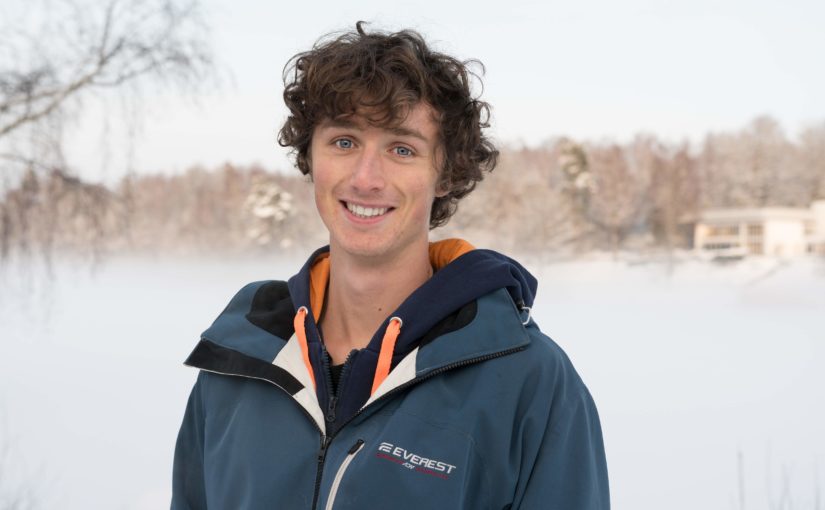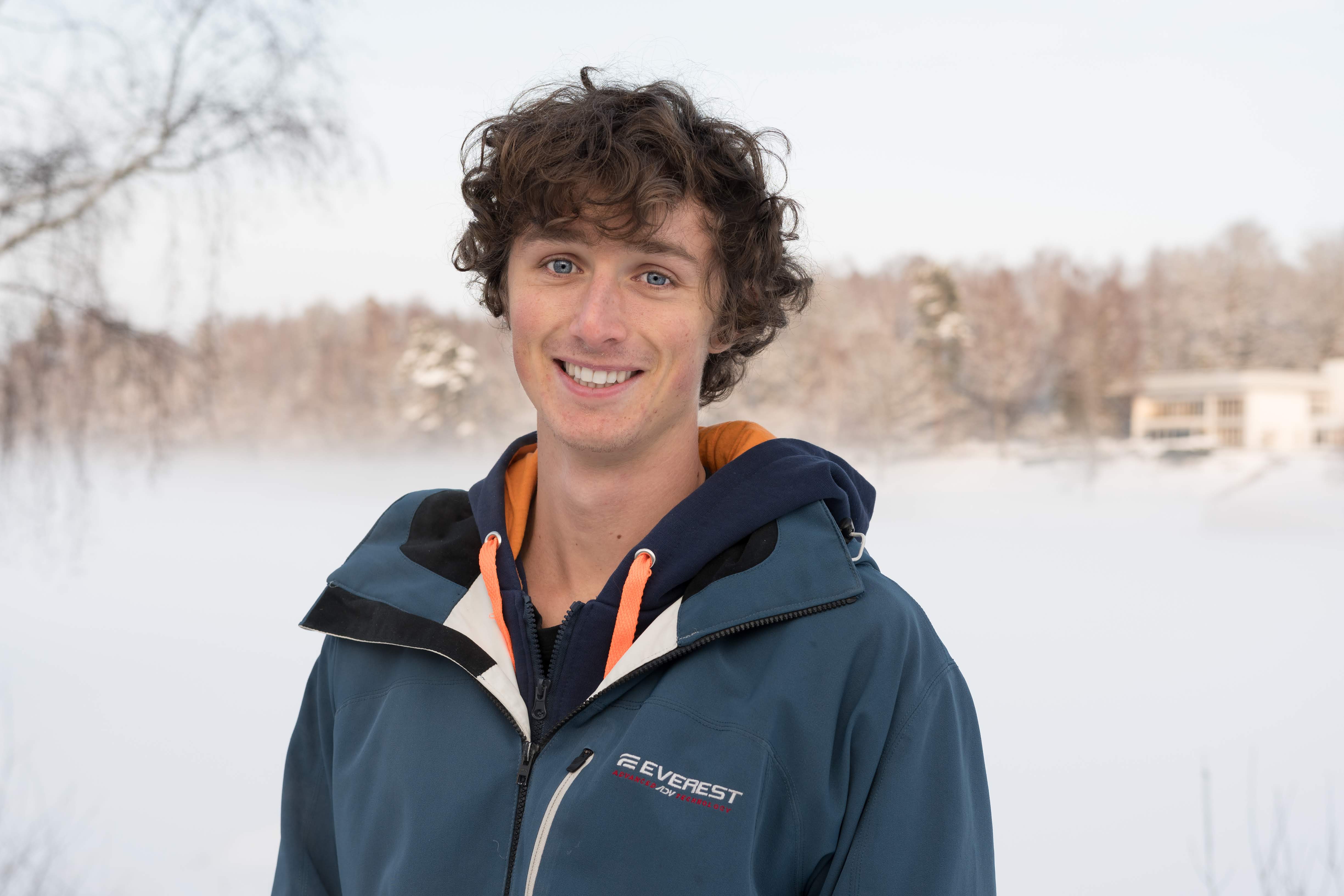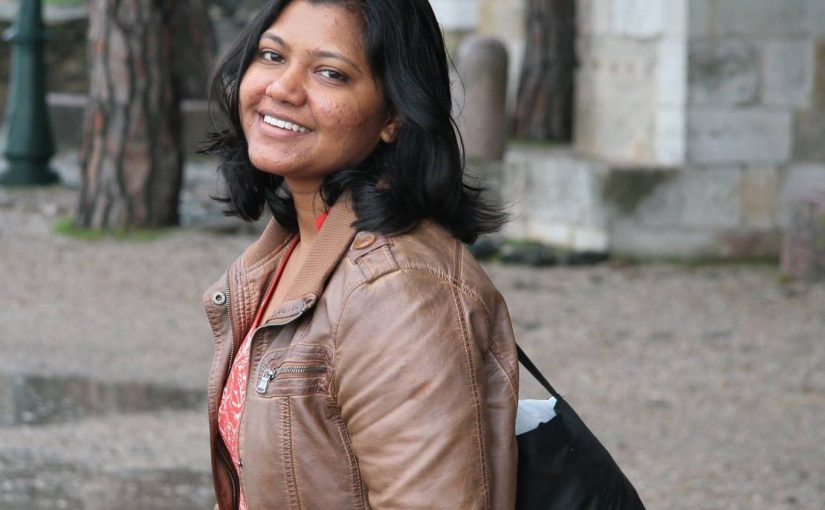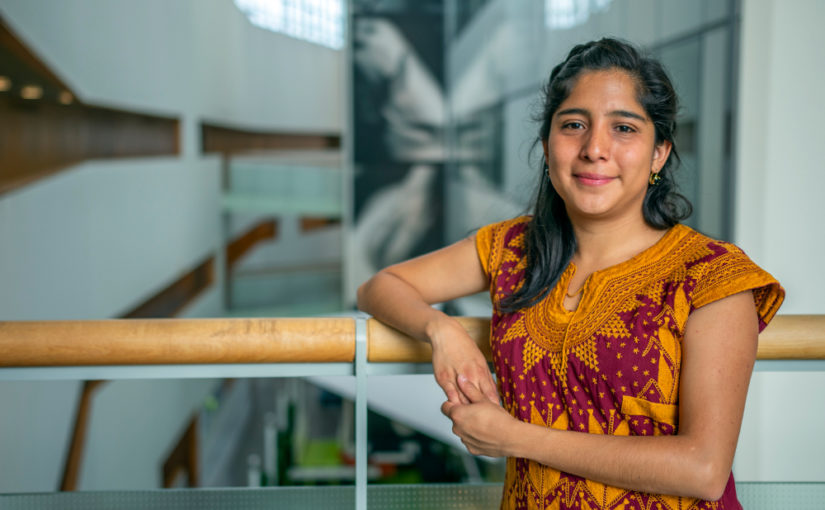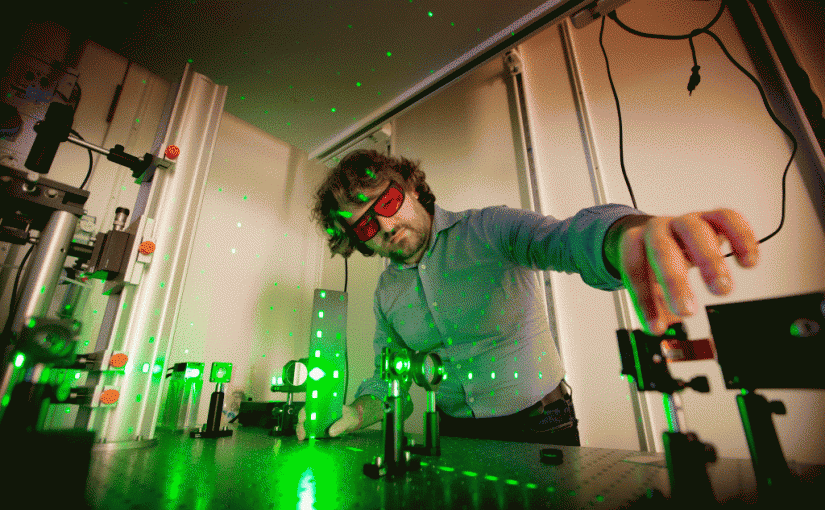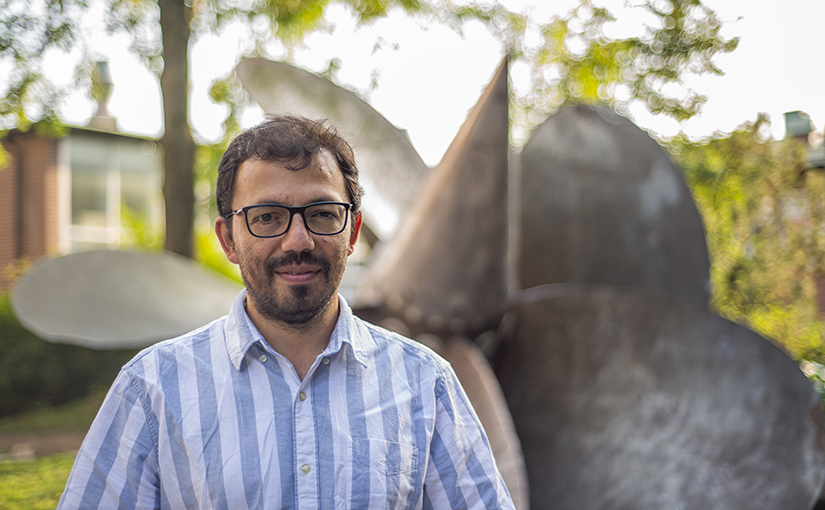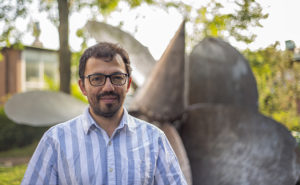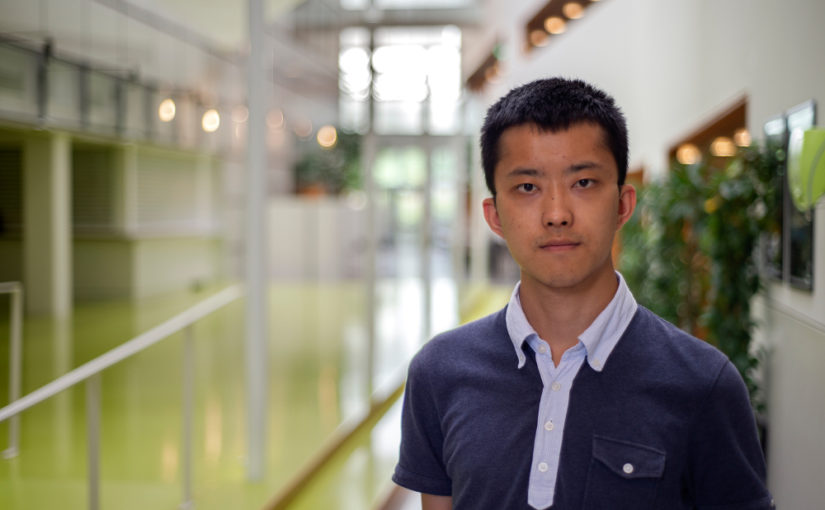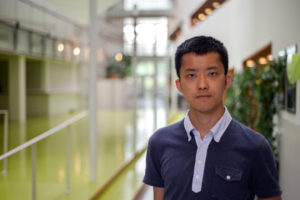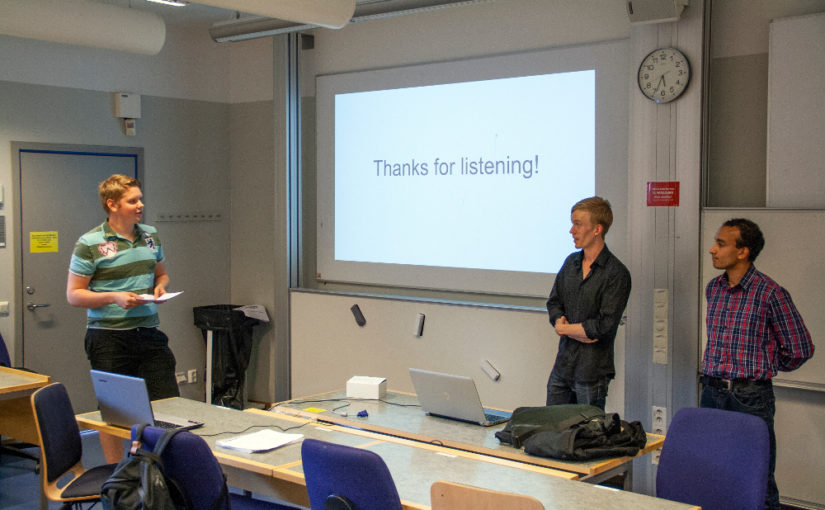From the article New Docent in Physics (English) and Ny docent i fysik (Swedish)
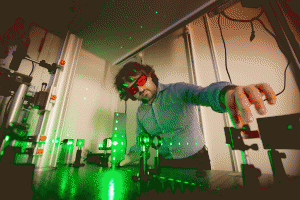 Three questions for Giovanni Volpe, appointed Docent in Physics at the Faculty of Science, University of Gothenburg.
Three questions for Giovanni Volpe, appointed Docent in Physics at the Faculty of Science, University of Gothenburg.
Interview by: Linnéa Magnusson
Photo by: Malin Arnesson
What is your research about?
“I am conducting research in several different areas. Part of my work concerns artificial micro swimmers. In simple terms, this is about biological and artificial objects of microscopic size that can get around by themselves and counteract microorganisms. Research on micro swimmers involves many possibilities within basic science, nanoscience and nanotechnology.
“I am collaborating with Karolinska Institutet on a project that deals with neurodegenerative diseases such as Alzheimer’s, Parkinson’s and ALS (amyotrophic lateral sclerosis). We have developed software that serves as a toolkit, helping us to detect these diseases at an early stage.
“Another project deals with optical trapping and optical manipulation. Using optical tweezers, I can measure microscopic forces, for example.
“Finally, I am also working on a project that involves managing the challenges of condensed matter physics – in other words, matter and processes at the atomic level. With the help of machine learning, we can handle complex algorithms.”
What can society learn from your research?
“I hope that our work with micro swimmers can become a foundation on which we can build, so that in the future we can use them in real life. For example, this could involve cleaning contaminated soil or developing what are known as chiral drugs – medications that are more selective and more controllable and that have fewer side effects. It is to be hoped that our work in neuroscience will lead us to quickly detect and treat neurodegenerative diseases.”
What do you think is most exciting about the future?
“What is most exciting is the possibility of using artificial intelligence to solve physical and medical problems. In the future we will go from people developing and testing ideas to have data and systems under investigation speak for themselves.
Tre frågor till Giovanni Volpe som antagits som oavlönad docent i fysik vid Naturvetenskapliga fakulteten, Göteborgs universitet.
Vad handlar din forskning om?
– Jag forskar inom flera olika områden. En del i mitt arbete handlar om konstgjorda ”micro swimmers”. Förenklat så handlar det om biologiska och artificiella föremål i mikroskopisk storlek som kan ta sig fram själva och motverka mikroorganismer. Forskning om ”Micro Swimmers” innebär en mängd möjligheter inom grundvetenskap, nanovetenskap och nanoteknik.
– Jag samarbetar med Karolinska Institutet inom ett projekt som handlar om neurodegenerativa sjukdomar, som Alzheimers sjukdom, Parkinsons sjukdom och ALS. Vi har utvecklat en programvara som fungerar som en verktygslåda, som hjälper oss att tidigt upptäckta dessa sjukdomar.
– Ett annat projekt handlar om optisk fångst och optisk manipulation. Med hjälp av optiska pincetten kan jag exempelvis mäta mikroskopiska krafter.
– Till sist arbetar jag även med ett projekt som handlar om att hantera utmaningar med den kondenserade materiens fysik, alltså materia och processer på atomär nivå. Till hjälp har vi inlärningsmaskiner som kan hantera komplexa algoritmer.
Vad kan samhället lära av din forskning?
– Jag hoppas att arbetet med ”Micro swimmers ” kan bli en grund att bygga vidare på. Så att vi i framtiden kan använda ”Micro swimmers ” i verkliga livet. Det kan exempelvis handla om att kunna rengöra förorenad jord eller utveckla så kallade kirala läkemedel, det vill säga mediciner som är både mer selektiva, mer styrbara och har mindre biverkningar. Arbetet inom neurovetenskap kommer förhoppningsvis leda till att vi snabbt kan upptäcka och behandla neurodegenerativa sjukdomar.
Vad tycker du är mest spännande i framtiden?
– Det som är mest spännande är möjligheten att använda artificiell intelligens för att lösa fysiska och medicinska problem. I framtiden kommer vi att gå från att det är människor som utvecklar och testar idéer till att det är datorer och system som kommer att undersöka och analysera varandra.
